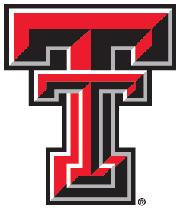 NEWS RELEASE
NEWS RELEASE
FOR IMMEDIATE RELEASE
DATE: April 17, 2013
CONTACT: Leslie Cranford, leslie.cranford@ttu.edu
(806) 742-2136
Texas Tech’s Burkhart Center for Autism Aspires to National Prominence
Faculty members, along with a new building, take aim at the growing challenge of autism.
According to new Centers for Disease Control and Prevention data released in late March, the prevalence of parent-reported cases of autism is significantly higher now than it was just five years ago.
From 2011 to 2012, one in 50 school-age children had a diagnosed autism spectrum disorder according to their parents – up from one in 86 in 2007.
Researchers at Texas Tech University’s Burkhart Center for Autism Education and Research are doing much to address the local and regional challenges posed by the ever-increasing number of individuals with autism, including a new building that concentrates three community needs into one helpful space.
Dave Richman, director of the center and the Jere Lynn Burkhart Professor and Endowed Chair, said the Burkhart Center’s primary objectives are to train regular and special education teachers; provide services for individuals with autism spectrum disorders (ASD) and their families; and to conduct research that will increase the quality of life of those affected by ASD.
“The Burkhart Center will be moving into its new building in September,” Richman said. “This will allow for the development of a full-inclusion preschool, expanded outpatient clinic services and an expanded transition academy. This creates more opportunity for the center to expand training and research activities centered on all three ‘clinical’ community needs.”
The center opened in 2005 in Texas Tech’s College of Education, with a generous donation from Jim and Jere Lynn Burkhart. Their intent was to establish a transition academy and to provide education about autism to the community, according to Janice Magness, director of the Burkhart Center’s Transition Academy.
“The Transition Academy was designed to provide a place for young adults to be, to help them transition from high school into competitive employment,” Magness said. “One of the things the Burkhart family wanted was teacher education and training for teachers, parents and anyone working with children and adults on the ASD spectrum.”
The Burkhart family also wanted to attract well-known people in the field of autism to lecture at Texas Tech, to better educate people in the area whose families were affected by autism. Their endowment helped set up the Burkhart Family Endowed Lecture Series and brings speakers to the annual Autism Conference.
“Thanks to Jim and Jere Lynn Burkhart, the Transition Academy is able to grow and expand to help young adults on the autism spectrum improve their life skills, job skills and social skills, making them more independent and employable,” Magness said. “The goal of the Transition Academy is to graduate young adults who are well-equipped to transition into the community.”
Since that beginning, the center is developing a regional, national and international reputation for conducting high-quality research (i.e., peer-reviewed journal publications, securing external grant funds and implementing high-quality services for families with ASD) that attract students who may not be familiar with Texas Tech but are very familiar with the autism researchers and service providers.
“The center offers a wide range of undergraduate and graduate opportunities for applied teaching and research opportunities,” said Wes Dotson, assistant professor in the college’s Department of Educational Psychology and Leadership and researcher in the Burkhart Center.
“Undergraduates can help with the Transition Academy’s Parents Night Out program, Summer Camp for young children with ASD, the social skills classes I teach, and applied research projects centered in teaching and behavior management strategies for ASD in several areas of Burkhart Center activity.
“The single biggest challenge to people with autism graduating from college or even attending college is the social deficits – we have a grant to build supports for that,” Dotson said. “I’m building a social support program for students with autism who have social difficulties.”
Richman has taught a doctoral-level grant writing class open to all doctoral students in the College of Education. The focus of the class was teaching future education leaders how to seek external funding to support teaching and research goals, with an end product being a rough draft of a grant proposal.
“We take seriously the education of our graduate students to be leaders in their fields,” Richman said. “All of our doctoral students have been developing their professional presentation skills, and we are training them to be active members of their intellectual communities. The students have presented posters and symposia at university, regional, national and international conferences in the last year.”
The Burkhart Center’s entire faculty and staff are working hard at community outreach and involvement all the while preparing to be a nationally known name in autism research in the next five to ten years.
Dotson has taught an undergraduate special education course and implemented the college’s goal of moving from assessment of students’ knowledge to assessment of teaching behaviors and skills. This helps to prepare the special education teachers of the future.
Along with the multitude of teaching and learning opportunities for Texas Tech students involved in the Burkhart through classes or community service, the center offers many other types of outreach to the community and families of individuals with ASD.
One example is the family support online forum and call-in center funded by a grant from The CH Foundation. Another is the Outpatient Clinic for learning and behavior problems. All of the Texas Council for Developmental Disabilities grants which fund the outreach projects are service grants with a research component.
Dotson also has taught autism awareness training for local parent groups, law enforcement officials, staff of the Region 17 Education Service Center, Texas Tech University Health Sciences Center occupational therapy students, Texas Tech student disabilities tutors and Texas Tech faculty and staff – just in the last year. He even has done training with a local church that wants to be more inclusive with people with disabilities, but wants its staff to be aware of the issues.
Last October the Burkhart Family Endowed Lecture Series featured best-selling author and well-known professor with autism, Temple Grandin. Upcoming this month is the ninth annual Walk for Autism Awareness, at 2 p.m. April 28 at Jones AT&T Stadium.
To speak with the family support specialist, Becky Critz, call (806) 224-5072. For other information on the center, call (806) 742-4561 or email burkhart.educ@ttu.edu
Find Texas Tech news, experts and story ideas at www.media.ttu.edu and on Twitter @TexasTechMedia.
CONTACT: Dave Richman, director, Burkhart Center for Autism Education and Research, Texas Tech University, (806) 834-4960, or d.richman@ttu.edu.




